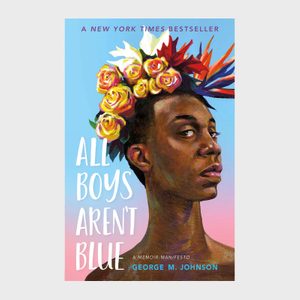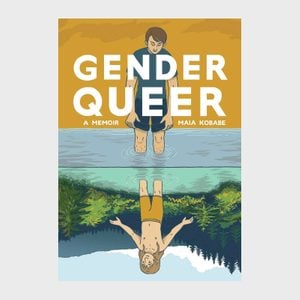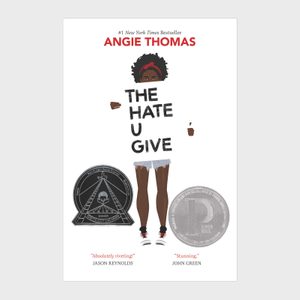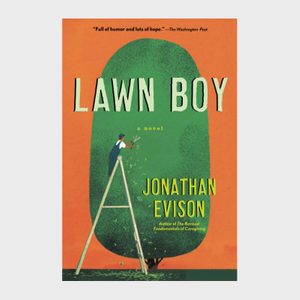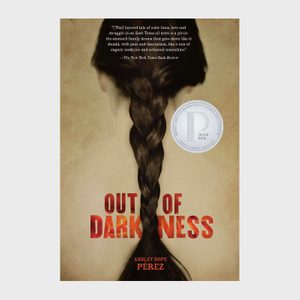Author George M. Johnson Won’t Be Silenced by Book Bans
Updated: Nov. 04, 2022
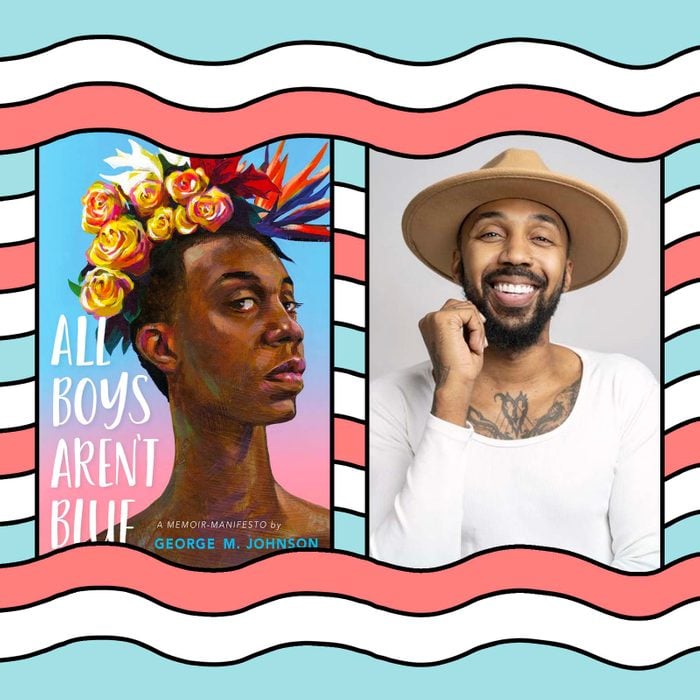
Book bans are on the rise across the United States, but George M. Johnson, author of All Boys Aren't Blue, knows we have to fight back
When George M. Johnson heard that school districts across the country were moving to ban their debut memoir, All Boys Aren’t Blue, they were sad—but not surprised. They knew perfectly well that LGBTQ+ books and books by Black authors are frequently banned. They also knew they were in good company. Some of the best books of all time have become banned books, including adult titles by authors like Toni Morrison and teen books like Angie Thomas’s The Hate U Give and Sherman Alexie’s The Absolutely True Diary of a Part-Time Indian.
Book banning is a form of censorship, and it’s been on the rise for the past few years. In 2021, the American Library Association reported that more than 1,500 books had been challenged or banned from libraries—double the number from 2020 and the highest figure since the organization began keeping track in 2000. (You can actually look up books banned the decade you were born, if you’re curious.) All Boys Aren’t Blue regularly tops the list of the most banned books.
Johnson wasn’t going to take this lying down. They’ve become a vocal activist in the anti-book-banning space and are currently serving as a co-chair of 2022’s Banned Books Week. It’s a lot to take on in addition to the work of being a full-time author, but for Johnson, calling attention to the rise in book bans and encouraging people to fight back against them is more than worth it.
“In any other time, this would be in the headlines every day,” they noted in a recent phone call. “We just have so many other things that we’re fighting against that this becomes a B story. And it needs to be an A story.”
Finding yourself in a book
Books open worlds, taking readers to new places and introducing them to lives unlike their own. But stories also reflect the familiar: characters who look like and have had experiences similar to readers. At least some readers.
Johnson knows from experience what it’s like to grow up in a world where you rarely see yourself on library shelves or on TV and movie screens. As a child growing up in New Jersey, “I never found [community] in books,” they say now. Most of the children’s books they encountered centered on straight white people. “It was what it was,” they say. “I grew up during a time where it just didn’t exist, or if it did exist, it was out of my reach.”
It wasn’t until they were an adult, working with people with HIV and AIDS, that they got interested in storytelling. “I’d go, ‘Oh, I wonder if anybody’s experienced this,’ and I couldn’t find stories,” they explain. “That was my cue: ‘Oh, I’m gonna have to write these stories.'”
Meeting kids where they are
Johnson worked as a freelancer, building a portfolio of nonfiction that focused on the Black queer community. Then, in 2017, they heard a story about a gay Black boy who’d been killed by his father. “The police report said the father stated that he would rather have a dead son than a gay son,” Johnson says. “And that became the catalyst. That was the moment where I was like, ‘I have to write a book.'”
They decided to focus on writing books for teenagers. “When you read other people’s memoirs, they talk a lot about what happened in their childhood,” Johnson says. “But those stories are being read by adults. My mindset was: What if you write about what happened in your childhood, and it’s for a child who may actually be going through it, and you get to them before that? You give them a road map. You give them a resource, so if they’re going through it currently, they can see how to navigate it.”
They also hoped to reach parents of queer teens who were looking for LGBTQ+ books. “I always thought, if we could just get the parents to understand: You don’t have to change your child. You don’t have to shun your child or shame your child or kick your child out,” Johnson says. “You should nurture your child and nurture the person that they’re becoming, rather than shape them to a mold that society tells you they have to be. I felt like if parents came to the understanding that the child that you give birth to is the child you give birth to, then we could close that gap on homophobia.”
Expanding worldviews
The book that Johnson started in 2017 was published in 2020 as All Boys Aren’t Blue. It went on to become a New York Times bestseller—and one of the most frequently banned books in the country. Johnson had once predicted as much. “This book is going to get banned,” they told everyone during their first big meeting with their publisher’s editorial and marketing teams.
They’re disheartened by the number of challenges and bans they see happening all over the country these days. Their work and the work of authors like them are tools that can help marginalized kids see themselves and expand the worldview of their peers. Shielding kids from these books doesn’t protect them from anything but the truth of our world.
“This is how we learn everything—through books and the curriculum in school systems,” they say. “If the curriculum doesn’t reflect the truth, then we are sending the youth out into the world with a story that is an alternative history. It’s one of the most important fights that I’ve ever had to take on.”
This is a critical battle for authors of many marginalizations. Books by Latinx authors, Asian American books and books about race relations in America are also frequent targets, and their absence on library shelves does a disservice to kids who want to understand themselves and the world around them.
“Books build empathy,” they say. “It’s important to know who exists around you because we don’t all exist in the same way. I can learn a lot about Asian culture through books that I read. I can learn a lot about people who practice Judaism or Islam.”
Putting an end to book banning, then, may be bigger than simply giving kids access to books that reflect their experiences. It might help produce more compassionate, empathetic leaders of the future.
“I think that’s really the important thing: It’s not just about a tool that helps kids see themselves,” Johnson says. “It’s also a tool that helps youth understand that other people exist outside of them—and that some of them have a privilege that can help those people. So maybe when they become the leaders, the systems they create and build will be encompassing of everyone because they have learned about other people.”
Speaking out
As disappointed as Johnson is with the current state of book banning in America, they’re also deeply inspired by what they’ve seen from teenagers whose lives have been changed by books like theirs.
“I’m watching these kids be activated: all of the banned book clubs that they created, all the petitions they signed and all the states they’ve actually won in,” they say. “Book bans are happening, but we’re not losing. We’re winning in a lot of these school districts. Students know that they have a voice, and they’re using that voice to talk about how these books are important to them—not just as reading materials but as lifesaving materials.”
You can find a like-minded community of book lovers in person or via the internet using resources like online book clubs. But either way, the first thing you have to do is exactly what teens across the country are doing: Speak out.
To fight book bans, Johnson says, what we all must do “is talk publicly about why these books are important: how the book made you feel, what the book taught you. Right now, there’s a narrative that goes, ‘Oh, this book is pornography’ or ‘Oh, this book is prejudiced.’ People who are actually reading the books have to share what the truth of the matter is.”
The second step is to make sure these books are accessible in places other than libraries. “Basically, what they’re doing [with book bans] is trying to close off one access point,” Johnson says. “So we have to create more access points. Our books need to be in airports, the Walmarts, the Targets. It could be in the free libraries. They need to be all over.”
To that end, Johnson has recently arranged dramatic readings of All Boys Aren’t Blue at film festivals around the country. They’re also working with actress Gabrielle Union on adapting the book for TV.
Supporting banned books
There’s one more thing book lovers can do to support frequently banned books and their authors. And it’s Johnson’s simplest piece of advice: “Buy the books.”
Keeping these books out of libraries is an attempt to stifle their popularity and make it bad business for publishers to buy books with any controversial subject matter. (Though “controversial” is up for interpretation, and many of the books are banned simply for centering on LGBTQ+, racial and feminist themes.) Buying them tells publishers that readers want this content. It also supports the authors themselves.
Johnson remains undeterred by censors’ efforts to silence them. They’re currently working on something new because, they say, their philosophy is “you can’t ban ’em all.”
“The more material I put in the world, the harder it becomes for you to fight it,” they say. “Because if your reasoning on All Boys Aren’t Blue is because of ‘porn,’ then when I write a book about the Harlem Renaissance, that has nothing to do with actual sexual acts, what is your reasoning then? It’s important that I don’t just have one book in the world.”

